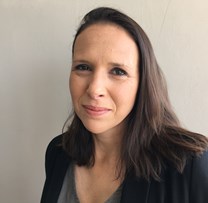Talks and workshop: Political discourses on Facebook, historical network analysis and the Wayback Machine
On May 31 CFI and NetLab/DIGHUMLAB are hosting two talks and a workshop with Dr. Anat Ben-David, senior lecturer in the department of Sociology, Political Science and Communication at The Open University of Israel.

The Centre for Internet Studies and NetLab/DIGHUMLAB are very pleased to welcome Dr. Anat Ben-David, senior lecturer in the department of Sociology, Political Science and Communication at The Open University of Israel and co-founder of the Open University's Open Media and Information Lab (OMILab).
Dr. Ben-David’s research interests include history and geopolitics of the Web, Digital STS, social and political studies of social media, and digital and computational methods for Web research.
On this occasion she will present her work on debunking the Internet Archive’s Wayback Machine as a monolithic device, on analyzing politicians' discourse on Facebook, and on doing historical network analysis.
Please see the full programme, including abstracts, below and sign up for the workshop and NetLab Forum meeting by sending an e-mail to Janne Nielsen (janne@cc.au.dk) no later than 22 May. It is not necessary to sign up for the lecture.
Programme Thursday 31 May 2018:
09.00 – 10.00: Open lecture, Incuba, Small Auditorium (building 5520, Åbogade 15, room 104)
The Internet Archive and the Socio-Technical Construction of Historical Facts
After years of stabilisation in the reputation of the web as a reliable source of knowledge, recent events around the 2016 presidential elections in the United States have brought with them new questions about the epistemology and ontology of online materials: how do we know how to trust an online source? What tools do we have to distinguish between fact and fake? What are the knowledge processes behind the generation of what we see on the screen? Among the various knowledge-devices of the world wide Web, the Internet Archive's Wayback Machine is considered one of the last reliable non-commercial initiatives, committed to providing universal access to archived snapshots of historical websites, as they were captured in real time. Yet what are the epistemic processes behind the generation of archived snapshots as facts? This talk aims to strengthen the ontological status of archived websites as evidence, by debunking the Wayback Machine as a monolithic device. Its argues that rather than an arbitrary capturing of snapshots by bots and crawlers, historical knowledge on the Wayback Machine is generated by an entangled and iterative system comprised of proactive human contributions, routinely operated crawls and a reification of external, crowd-sourced knowledge devices. These turn the IAWM into a repository whose knowing of the past is potentially surplus – harboring information which was unknown to each of the contributing actors at the time and place of archiving.
The event is hosted by Centre for Internet Studies, AU.
_____
10.00 – 13.00: Workshop, Ada 333 (building 5342, Åbogade 34, room 333)
Archive vs. Newsfeed: A proposition for building alternative knowledge spaces from Facebook data
This workshop puts forward the notion of the searchable archive as a competing knowledge paradigm and a means for circumventing Facebook’s algorithmic mediation of social and political on Facebook. It makes a theoretical and methodological proposition for re-introducing archival logic to the study of ephemeral and algorithmic social media. Such proposition attempts to replace Facebook's personalized and generative knowledge regime with principles of universal knowledge and fixed data. Using examples from Polibook.online, a research tool for analyzing politicians' discourse on Facebook, the workshop aims both to illustrate the utility of such attempts to archive, re-organize and re-mediate Facebook data, as well as to discuss their limits in "democratizing methods" or "liberating" users from the platform's constraints on what it lets them 'know'.
This event is hosted by Centre for Internet Studies, AU. Please sign up for the workshop by sending an e-mail to Janne Nielsen (janne@cc.au.dk) no later than 22 May (seats are limited).
_____
14.00 – 16.00: NetLab Forum meeting, Ada 333 (building 5342, Åbogade 34, room 333)
Historical network analysis with the archived web
This presentation offers a critical reflection on the potential and limits of network analysis for web historical research, using archived web data.
This event is hosted by NetLab/DIGHUMLAB, AU, and the presentation will be part of a NetLab Forum meeting, which will also feature one of two other presentations (TBA) relating to research use of archived web. Please sign up by sending an e-mail to Janne Nielsen (janne@cc.au.dk) no later than 22 May.
